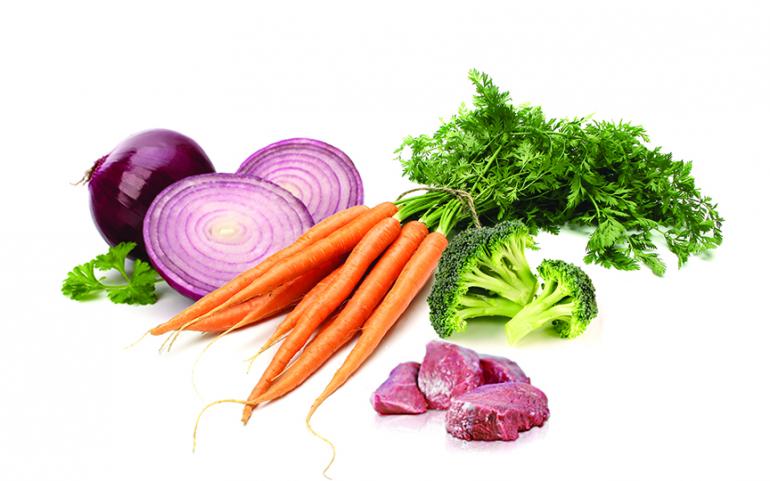Winter's Pantry
An omnivore’s delight.
The global economy affords us certain luxuries, such as cantaloupe in Montana in January. However, having the same fruits and vegetables year-round is not a natural phenomenon. When we eat the same foods all the time, it increases the risk of our immune system reacting to those foods, causing inflammation. Chronic inflammation is strongly associated with chronic diseases such as autoimmune disorders, heart attacks, and cancer. As omnivores, humans are designed to eat a variety of foods—eating in-season food helps us stay in tune with nature’s rhythms and get all the necessary nutrients.
Eating “in-season” during winter does not mean Christmas cookies, candy canes, and chocolate from your many Valentines. While these foods are tasty, excessive amounts can lead to weight gain, diabetes, and inflammation. Holiday treats should be just that: a treat.
Foods that support health and are in-season during winter include the cruciferous vegetables: broccoli, cauliflower, Brussels sprouts, kale, turnips, and cabbage. These vegetables do contain goitrogens—substances that interfere with thyroid function—but this is only an issue if the vegetables are consumed raw in large quantities. To avoid this minor risk, lightly steam the vegetables to deactivate the goitrogens while minimizing nutrient loss, and don’t juice more than you could eat in one sitting. Cruciferous veggies are rich in Vitamin A, Vitamin C, folate, calcium, and antioxidants. They also help the liver to detoxify the body.
Root vegetables are also winter staples: carrots, parsnips, beets, yams, and rutabaga are good sources of fiber and minerals. These veggies are great roasted and in soups and stews. Celery and fennel are also winter foods, and go well with the above dishes.
Winter squash is a winter vegetable (obviously) and is a fantastic source of fiber, Vitamin A, Vitamin C, Vitamin E, several B vitamins, magnesium, potassium, and calcium. These guys are delicious baked in a few inches of water until soft. Take the squash out of the oven and add a pinch of salt, cinnamon, nutmeg, ginger, and a pat of pasture butter.
Game meat from hunting season provides protein, essential fatty acids, B vitamins, iron, zinc, and selenium. Nutrients this good keep our fires burning steady throughout winter. Medium-rare to medium is your best bet to reduce amine formation, a risk factor for colon cancer.
Don’t forget about onions, garlic, and pickled or fermented vegetables. Onions and garlic add flavor, but they are also warming, thin mucus, have antiviral and antibacterial properties, and help detox the liver. Pickled or fermented foods, such as sauerkraut and kimchi, provide probiotics needed for digestive health and immune function.
Seasonal produce is not only better for you, it tastes better as well. That cantaloupe might be available in January, but it will be more enjoyable in June. Stick to in-season foods this winter for better flavor and better health.
Lou Walters is a naturopathic physician at The Source Wellness Center in Bozeman. For more information visit TheSourceWellnessCenter.com.













